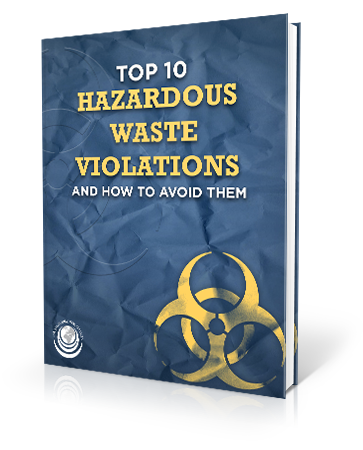Are You Aware Of Your Non-Hazardous
Waste Disposal Options?
4 Things You Need To Consider
If You Are Trying To Save Money
Declassification
Is your waste classified as hazardous or non-hazardous? Do you know how to tell?
Excluded Material
Can your waste take advantage of the excluded materials rule? Are you completing your MSDS correctly?

RCRA or Not
Are your metals on the RCRA 8 list?

Certified
Are you confident your waste is being disposed of legally?
Don’t forget about your cradle to grave responsibility.
CAN YOU DO IT YOURSELF?
Determining if your waste can be classified as non-hazardous waste is extremely important. In addition to substantial cost savings, it will alleviate any issues with the DTSC.
5 Examples of Non-Hazardous Waste
If you are unsure if any of your waste streams meet the non-hazardous waste requirements, please contact us.
E-Waste
Many states consider e-waste to be hazardous. However, many of the individual parts are non-hazardous.
Secondary Materials
Secondary materials are not primary products that a company produces, and are instead scraps or residuals that are the result of a production process.
Excluded Recyclable Materials
An important step in being able to realize the benefits of recycling hazardous waste streams involves obtaining a new classification for your waste materials.
Medical Waste
Only 15% of medical waste is considered hazardous material that may be toxic, infectious or even radioactive. Sampling and testing can identify what is hazardous saving you time and money.
Industrial Materials
Certain types of industrial material may be non-hazardous in one state but be considered hazardous in another
The Top Ten
Hazardous Waste Violations
& How To Avoid Them
Walmart fined $82 Million Over Mishandling of Hazardous Wastes
Don't Let This Be You!
Knowing how to identify the potential problems associated with hazardous waste can prove to be a costly mistake if not done correctly. Our latest ebook will walk you through the Top 10 Hazardous Waste Violations and give you solutions to help you avoid them.
A few of the things you will learn are:
- What are regulators looking for
- The most common reasons companies get fined
- What you can do about it NOW!

